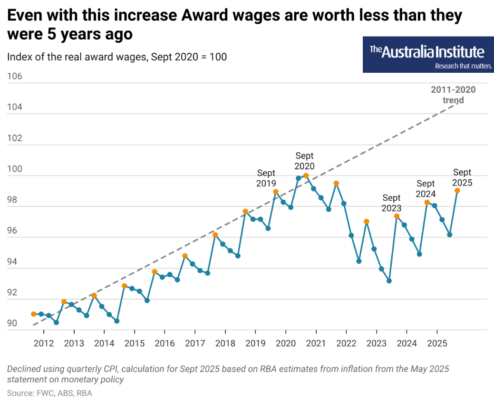The deterioration of the Tasmanian budget means that net debt is expected to reach $10 billion by 2027-28.
However, two simple measures at the Commonwealth level could raise an additional $303 million a year in revenue for the Tasmanian government, or $1.5 billion in total over the 5 years to 2030.
These changes are:
- Renegotiating Western Australia’s GST deal, which was struck under the Scott Morrison government, and gives WA a much higher share of total GST.
- Broadening the GST to include private school fees and private health insurance.
Independent Economist Saul Eslake estimates that for the five years to 2030, the average annual cost of the WA GST deal is around $4.1 billion a year, and says changes to the GST carve-up deal are not working as intended.
“A government that truly believed in equity, and was committed to prudent and responsible budget outcomes, would scrap this appalling piece of public policy,” wrote Saul Eslake in The Conversation.
“And an Opposition that was sincere in its claims to stand for fiscal responsibility would support any move by the government to do so.”
If that $4.1 billion was distributed to other jurisdictions on existing GST revenue shares, the Tasmanian government would receive around $154 million a year in additional revenue.
Over the period to 2030, close to an additional $770 million could be generated.

